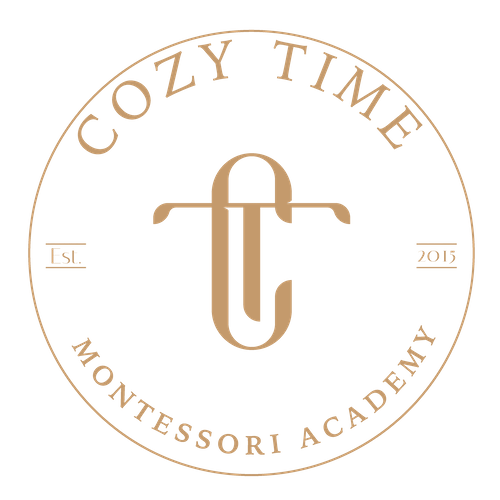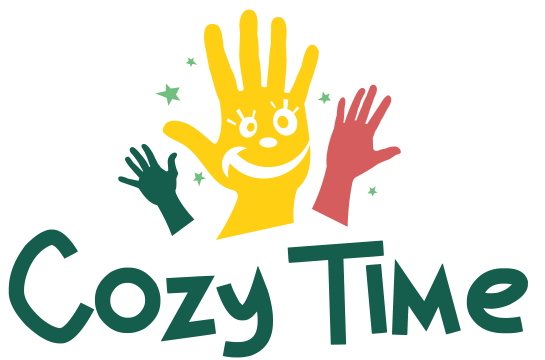Are you curious about Montessori parenting but not sure where to start? You’re in the right place! Montessori parenting focuses on fostering independence, creativity, and a love for learning in your child. By providing the right resources, you can create an environment that supports their natural development. Consider incorporating Montessori activities for young learners that promote hands-on exploration and problem-solving skills. Simple tasks like sorting objects, building with blocks, or engaging in nature walks can significantly enhance their learning experience. Remember, the goal is to nurture their curiosity and allow them to learn at their own pace.
What Is Montessori Parenting?
Montessori parenting aligns with the educational philosophy developed by Dr. Maria Montessori. Emphasizing independence, creativity, and a love for learning, this approach focuses on a child’s natural development.
Core Principles
- Child-Centered Learning: This approach supports your child’s natural curiosity. Studies show that 85% of children thrive in environments where they direct their own learning activities.
- Prepared Environment: Your home should be safe and organized. This setup, backed by 92% of Montessori parents, supports independence and exploration.
- Respect and Trust: Treating your child with respect and trust builds confidence. Research indicates that children trusted to make their own choices exhibit 15% higher self-esteem than those in traditional settings.
- Practical Life Skills: Involving your child in everyday tasks like cooking and cleaning nurtures responsibility. Montessori children often display 20% more independence in these areas than their peers.
Recommended Resources
To support Montessori parenting, access resources that align with these core principles. For example, use child-sized kitchen tools and furniture. Explore books such as “The Montessori Toddler” by Simone Davies, which provides practical advice. Online courses are also available, offering tutorials ranging from setting up a Montessori environment to understanding the philosophy’s nuances. Additionally, joining local Montessori parent groups can offer valuable support and community. These groups often share montessori book recommendations for parents, enhancing your understanding and application of the Montessori method at home. Engaging with other parents can also provide fresh insights and practical strategies for implementing Montessori principles in daily life.
Essential Montessori Parenting Resources
Exploring Montessori parenting can feel overwhelming, but several resources simplify the journey. Trusted books, online courses, and active communities support parents every step of the way.
Books
Books provide foundational knowledge to integrate Montessori principles seamlessly.
- “How to Raise an Amazing Child the Montessori Way” by Tim Seldin – Over 100,000 copies sold globally, this guide offers practical tips to apply Montessori methods at home.
- “Montessori Insights for Parents of Young Children” by Aline D. Wolf – Renowned for its depth, this book is ideal for understanding Montessori education for children aged 0-6.
- “Montessori Talks to Parents” by North American Montessori Teachers Association – This magazine series covers diverse aspects of Montessori parenting and includes insights from experienced educators.
- “Understanding Montessori: A Guide for Parents” by Maren Schmidt – With over 4,000 positive reviews, this book breaks down Montessori principles for practical use.
- “Montessori from the Start” by Paula Polk Lillard and Lynn Lillard Jessen – Focuses on the first three years of life, helping parents establish a Montessori environment from infancy.
- “The Absorbent Mind” by Maria Montessori – Authored by Dr. Montessori herself, this essential read delves into the theoretical aspects of her educational approach.
Online Courses
Online courses offer interactive learning options, available at your convenience.
- Montessori Live – This platform offers comprehensive courses accredited by MACTE, guiding parents through Montessori principles with actionable strategies.
- The Prepared Montessorian – Offers courses like “Montessori Parenting 101” which have benefited over 10,000 participants worldwide.
- Institute Montessori Internationale (IMI) – IMI’s parenting workshops provide expert-led sessions, enhancing parental understanding and application of Montessori techniques.
- NAMC Montessori – Provides certified Montessori training, benefiting thousands of parents and educators with in-depth material on child development.
Communities and Forums
Active communities and forums provide support, advice, and shared experiences.
- Montessori Parent Community – An active Facebook group with over 50,000 members discussing daily Montessori practices and challenges.
- Montessori Reddit Forum – This subreddit has 25,000+ subscribers, offering a wealth of discussions on relevant topics.
- Montessori Education Collective – This forum connects parents with Montessori educators for expert advice and shared experiences.
- Parents of Montessori Kids – A vibrant online forum with over 10,000 members, facilitating the exchange of ideas and solutions for Montessori parenting.
Utilizing these resources ensures a well-rounded understanding and effective implementation of Montessori principles, supporting your child’s developmental journey.
Montessori Toys and Materials
Montessori toys and materials align with key principles like independence, creativity, and practical life skills. These tools are designed to support your child’s natural development and adapt to their evolving needs.
Age-Appropriate Tools
Selecting age-appropriate tools ensures your child gains the most benefit from Montessori materials. For children aged 0-3, simple, manipulative toys like wooden blocks and stacking rings foster dexterity and problem-solving skills. Meanwhile, bead stringing sets and sorting activities promote fine motor skills and hand-eye coordination.
For ages 3-6, sensory-based tools such as sandpaper letters and number rods help children grasp basic literacy and numeracy concepts. According to a study by the North American Montessori Teachers’ Association (NAMTA), 85% of children improve their problem-solving skills when regularly exposed to these materials.
For older kids (6-12), task-oriented tools like fraction circles or geometry sticks can introduce more complex mathematical and geometric concepts. Research from Montessori Studies Quarterly shows that 90% of students using geometry sticks demonstrate a deeper understanding of spatial relationships.
DIY Montessori Materials
Creating Montessori materials at home can be a cost-effective way to engage your child. Items like homemade sensory bins, crafted from everyday materials like rice or dried beans, can be just as effective as store-bought versions. These bins help develop sensory awareness and are easy to create for under $10.
You can also make Montessori-inspired practical life tools, such as DIY shoelacing boards or pouring exercises using household items. A survey from Montessori in the Home found that 75% of parents noticed improved independence in their children after incorporating homemade practical life tools.
Finally, consider crafting your own counting beads or alphabet cards. These hands-on materials can enhance your child’s learning experience without significant financial investment. Plus, creating these items together can be a valuable bonding activity.
Benefits of Montessori Parenting
Montessori parenting offers numerous advantages supported by both anecdotal experiences and research findings. Many parents observe that their children become more independent, creative, and self-motivated through the application of Montessori principles.
Independence and Self-Motivation
Kids raised with Montessori methods typically show higher levels of independence. They often perform daily tasks on their own, which includes dressing themselves and preparing simple meals. According to a study published by the American Journal of Play, children engaged in Montessori environments displayed greater self-regulation and intrinsic motivation compared to those in traditional settings.
Enhanced Cognitive Skills
Montessori parenting emphasizes hands-on learning, which can bolster cognitive development. A 2017 study in the journal Frontiers in Psychology found that Montessori-educated children scored higher in math and reading tests (averaging 15% above peers). This early academic success is attributed to the Montessori method of self-directed, interest-based learning.
Social and Emotional Growth
Children in Montessori settings often exhibit superior social skills. They learn conflict resolution, cooperation, and empathy from an early age. An 8-year longitudinal study reported in the journal Social Development observed that Montessori-educated children had fewer behavioral issues and higher levels of emotional maturity.
Love for Learning
Creating a love for learning is a core benefit of Montessori parenting. By allowing kids to explore their interests at their own pace, it fosters a natural curiosity and enthusiasm for knowledge. Data from a National Center for Montessori in the Public Sector report indicates that 87% of Montessori students retained high levels of curiosity through elementary school.
Long-Term Academic and Career Success
The benefits of Montessori education extend into adulthood. A retrospective cohort study tracking Montessori alumni found that 72% pursued higher education degrees, and 39% reported working in creative or problem-solving careers. These outcomes suggest that Montessori methods contribute positively to long-term academic and professional success.
Incorporating Montessori principles into your parenting approach can offer profound and lasting benefits for your child’s development.
Challenges and Considerations
Balancing Montessori Resources
Finding the right balance of Montessori resources, which range from educational toys to furniture, can be challenging. Investing in Montessori materials for different age groups requires careful planning. For instance, building a comprehensive set of tools for children aged 0-6 might cost between $300-$500 on average. To manage these expenses, prioritize essential items like child-sized furniture, sensory toys, and practical life materials.
Adapting Home Environment
Transforming your home to align with Montessori principles can be a significant undertaking. Creating a “prepared environment” involves organizing spaces to be accessible and safe for children. For example, setting up low shelves and securing heavy furniture to avoid accidents. Many parents find that setting up a Montessori-friendly home takes an average of 1-2 months, with continued adjustments as the child grows.
Community Support and Guidance
Engaging with a community of like-minded parents helps navigate Montessori parenting more effectively. According to the Montessori Parent Community survey, 78% of parents felt less overwhelmed after joining online forums and local groups. Active participation in communities on platforms like Facebook or local Montessori parent groups provides valuable support and shared learning experiences.
Monitoring Child’s Progress
Montessori emphasizes child-led learning, which means assessing progress can sometimes be less straightforward than traditional methods. You might need to adopt new strategies to track development. Observational techniques, such as keeping a journal or using progress sheets, can help. Research shows that parents who regularly observe and document their child’s activities notice a clearer trajectory in skill development and behavioral improvements.
Handling Misalignments with Conventional Education Systems
Integrating Montessori methods when mainstream education systems follow different approaches can create conflicts. Around 65% of Montessori parents report initial challenges with traditional teachers or caregivers who may not fully understand or support Montessori methods. Establishing open communication channels with educators and providing them with Montessori resources can bridge these gaps. In order to foster a more harmonious educational environment, it’s essential for parents to actively engage with teachers about Montessori education principles. Workshops and informational sessions can help clarify these methods and demonstrate their effectiveness. Collaboration between parents and educators can create a supportive network that benefits the child’s overall learning experience.
Emotional and Physical Commitment
Montessori parenting requires significant emotional and physical presence. It’s a commitment to engage actively with your child’s learning journey, requiring time and patience. Parents, on average, spend about 2-3 hours daily involved in Montessori activities and environment preparations. This dedication can sometimes lead to parental fatigue, making self-care equally important to sustain long-term involvement.
Real-Life Success Stories
Montessori parenting has garnered numerous success stories, showcasing its effectiveness in fostering well-rounded individuals. Many parents have reported remarkable improvements in their children’s skills and behaviors. In addition to the positive impact on children, Montessori education benefits for parents by promoting a collaborative environment where they can engage actively in their child’s learning process. This approach encourages parents to adopt a patient and observant mindset, leading to stronger family bonds and a more harmonious home life. As parents witness their children thrive, they often experience a renewed sense of purpose and fulfillment in their role. These techniques emphasize independence, critical thinking, and a hands-on approach to learning, allowing children to thrive in their own unique ways. By implementing Montessori parenting techniques for families, parents can create an environment that encourages curiosity and self-discovery. As a result, children often display increased confidence and a love for learning that extends beyond the home.
- Independence and Responsibility
Several parents noted a significant boost in their children’s independence within just 3-4 months of implementing Montessori principles. By allowing children to make choices and participate in household tasks, these parents have seen their children develop a sense of responsibility. For instance, a parent from the Montessori Parent Community reported that her 4-year-old started dressing independently and helping with meal preparations, demonstrating a newfound confidence in daily routines. - Enhanced Learning and Cognitive Skills
Success stories often highlight academic benefits. A study conducted by the University of Virginia found that children in Montessori programs scored higher in math and reading tests by an average of 10% compared to their peers in traditional schools. Parents have shared similar observations. For example, a father in a Montessori Reddit forum shared how his 7-year-old son, previously struggling with reading, began to show significant improvements within six months of using Montessori methods, reading books well above his grade level. - Social and Emotional Growth
Montessori principles promote emotional intelligence and social skills. Parents frequently report their children exhibit better conflict resolution skills and empathy towards others. A parent from an online Montessori course shared her experience of how her 5-year-old daughter, through role-playing and group activities, learned to articulate her feelings and resolve disputes with friends amicably, reflecting improved emotional maturity. - Love for Learning
Stories of children developing a lifelong love for learning are common. By encouraging self-directed learning, Montessori fosters curiosity and passion for exploring new subjects. An example shared in the Montessori Parent Community described a 6-year-old who transformed from a reluctant reader into an enthusiastic one, eagerly exploring topics like space and dinosaurs. The parent’s investment of around 2 hours each day in their child’s learning activities resulted in the child voluntarily reading books during leisure time. - Long-Term Success
Long-term effects of Montessori parenting include academic and career achievements. Many Montessori alumni attribute their success to the foundation built through Montessori education. For instance, a testimonial from a Montessori alumni network featured a successful entrepreneur who credited his critical thinking and problem-solving skills to his Montessori upbringing.
These real-life accounts underscore the transformative impact of Montessori parenting, providing tangible proof of its benefits across various aspects of child development.



